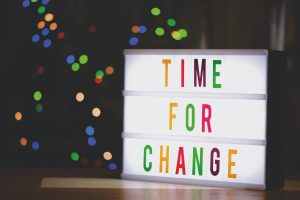Why a Doctorate
On the eve of my graduation, this post is about my reflections on completing a doctorate. Years of dedication, toil and support from friends, family and colleagues have delivered me to this point.
What set out as my personal Everest is complete. However, I am now reflecting on why I started, how the process changed me, what I learnt, and what would I change?
Evidently, this is not a post about my thesis or my findings. Contact me if you would like to talk about family business and succession.
The Beginning
As a Charted Management Accountant involved in business leadership for over twenty years, the reasons for beginning a doctorate were threefold: personal, academic and commercial. But personal was always the most important.
So, I was relatively late to the concept of combining raw intellectual capability with focused academic industry. After qualifying as an accountant, I decided to utilise my professional work ethic in educational development.
Previously, I completed two degrees and then moved onto an MBA and the prospect of completing a Doctorate loomed. My Master’s thesis was a model based on the ‘best way’ of completing a succession in a family business. However, I wanted to test modes of ‘best ways’ and see what that meant to family businesses.
I had witnessed succession planning issues and a lack of focus on profitability during my career, which had led to awful problems from those businesses. The businesses had been successful for many years providing economic, technical and commercial benefits to society and then entered a phase of uncertainty, conflict and decline.
Determined to learn more about the succession event, I set off to and provide assistance to family businesses through their process of CEO change.
Consequently, this would be my personal Everest, achieving the highest academic level. Unquestionably It would be difficult, complicated, but ultimately worthwhile.

Initial Stages
It was clear from the outset that deep thinking, organisation and reflection were going to be essential parts of the journey. The changes that I was anticipating were developments in knowledge and understanding, intellectual skills, subject-specific skills and some exciting new transferable skills.
I engaged my passion for learning and personal development!
As a naturally analytical and reflexive person, I knew from the start that the process of completing the thesis would involve a deconstruction and reconstruction of thoughts and knowledge within a backdrop of my career, personal life and as a student researcher.
This deconstruction and reconstruction also happened during the completion of my accounting exams. I have often spoken to students I have coached through the years about this process. During my reflection on the Doctorate process, I discovered interesting work in this phenomenon of change decades earlier by Van Ganeep (1960) and Turner (1969, p. 126) as liminal phases.
Van Ganeep (1960) described liminal phases as the in-between periods when a transition is taking place. Turner (1969, p. 126) explaining that the liminal period was one of uncertainty, which “…has few or none of the attributes of the past or coming state”.
In my case, the oscillations of change were between senior roles in business (Chair and CFO), being a new parent and as a relative novice in the field of doctoral research.
Being able to perform at a good level in all these areas, was at the heart of the doctorate challenge.

Working Methods
I prepared for the doctoral process, but the reality contained seismic shifts in perception, self-awareness and confidence. There were times throughout when the doctorate felt like a black hole from which no time, space or information escaped. Thankfully, there was assistance from research supervisors, my colleagues and family in diverse ways.
I kept detailed work schedules and personal journals as an aide-memoire and metronomic support. It became clear that despite the proximity of valued support, the completion of the doctoral process would ultimately be very personal and would require significant internal discipline.
It became essential to withdraw into periods of ‘bracketing’ whereby I could “deliberately and temporarily suspend…certain aspects of the self” (Hay & Samra-Fredericks, 2016, p. 2). I alternated between family, work-life and research.
I realise that I was incredibly fortunate, like Barack Obama, to have “…taken the chaos of [my] unfinished [thesis] and…do battle with it” (Obama, 2018, p. 171). The many locations of the private study included Preston, Wigan, Warwick, London, Derby, Leicester, Keele, Brussels, Chicago, Liverpool and Manchester but, unlike Barack, never Bali.

The Family Business Field
My interest in family business began as a practitioner providing advice and support on their strategic selection and financial and operational management.
Engagement with the academic field started by attending conferences and then playing a small role in establishing a forum in London where leading experts gave lectures.
The established and developing researchers in family business are incredibly passionate. Over the years, I witnessed the progression and insights within the field with great interest. For such a well-established organisational structure, family business research feels fresh and continuously improving in quality and impact. The leading authors and journals provided useful foundations for research along the way.
This freshness meant there were areas which were ripe for focus and development, particularly with a practitioner emphasis and opportunities to make things better for the family businesses that wanted to embark on a succession process. I passionately believe that the findings in my study will help family businesses.
What did I learn?
To draw upon the aspects of liminality once more, research development, like life, oscillates between the feeling of staying the same and forever changing. Ultimately the learning has been professional, personal and practical.
Practically, I have developed significant continued expertise with the tools shown in a separate blog post.
There are, of course, many free and paid alternatives for the systems above, but I found these to be perfect for my working methods.
From a personal perspective, I have always been a confident person in terms of professional delivery. Initial concerns were whether these aptitudes would translate to an academic setting and whether new skills would develop appropriately.

The doctoral process has changed how I approach learning and development. I developed a holistic tool for continuous professional development that I use professionally and personally.
I also developed an evidence-based system of problem resolution in all areas of life. This was a key personal aim, to be able to utilise ideas, theories and concepts created within academia to professional and personal beneficial effect.
Resilience has also developed, along with an increased capacity for adaptability and change. Although, that may be due to the ageing process also!
What would I do differently?
My reflections on completing a doctorate would be incomplete if I didn’t consider this question. I learnt a great deal over the years that have passed while completing the study. In this case, it is difficult to say what I would do differently because the end product was incredibly satisfactory.
One area to consider would be an awareness of how long things can take in academic writing and research. In a professional context, I gauge the level of complexity of a task and manage hard and unbreakable deadlines. Academically, the pace of progress was slower.
However, those more extended periods of academic reflection provided time for new helpful research to emerge. Ultimately there was no guarantee of satisfaction. Changing things would seem a risk not worth taking.




